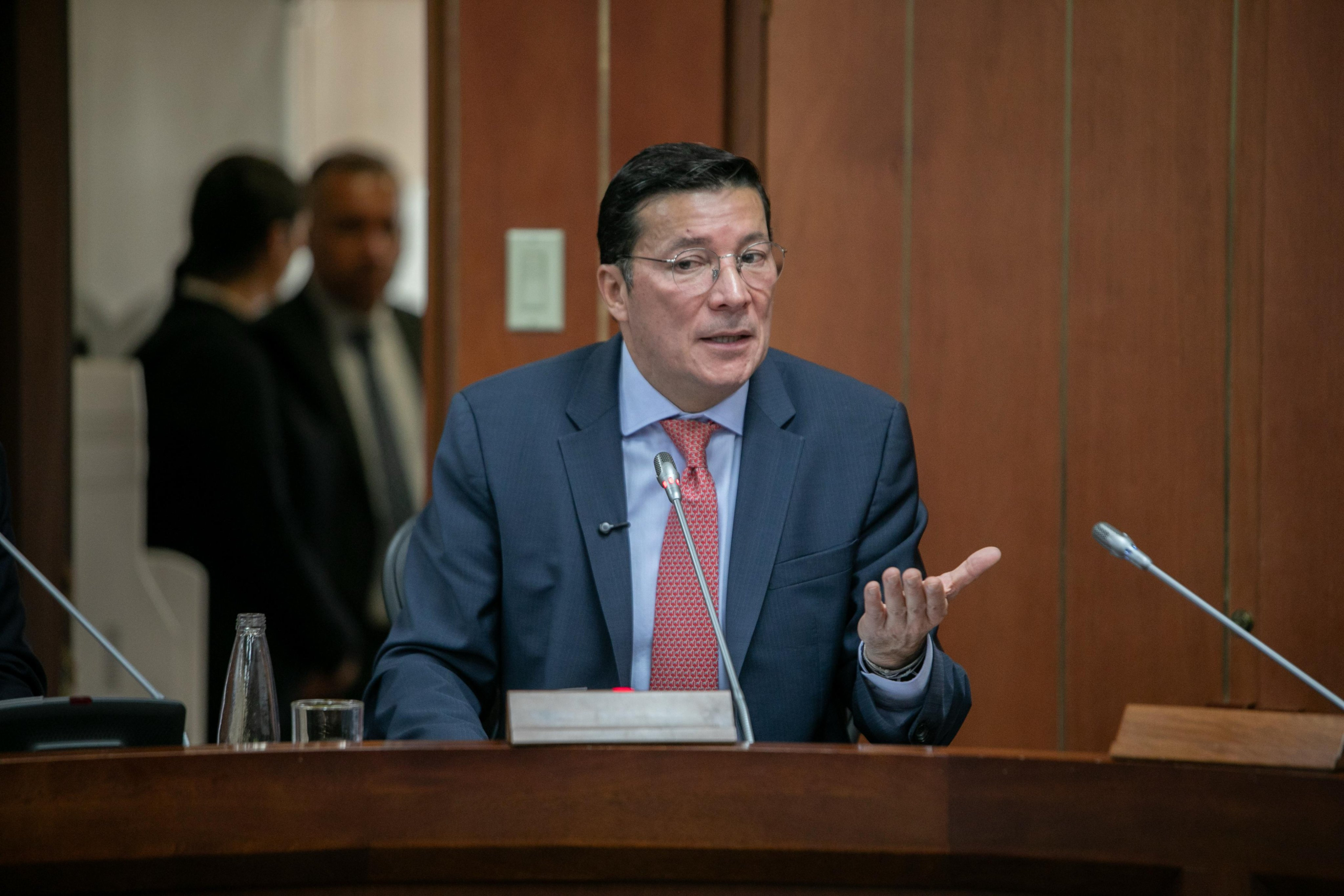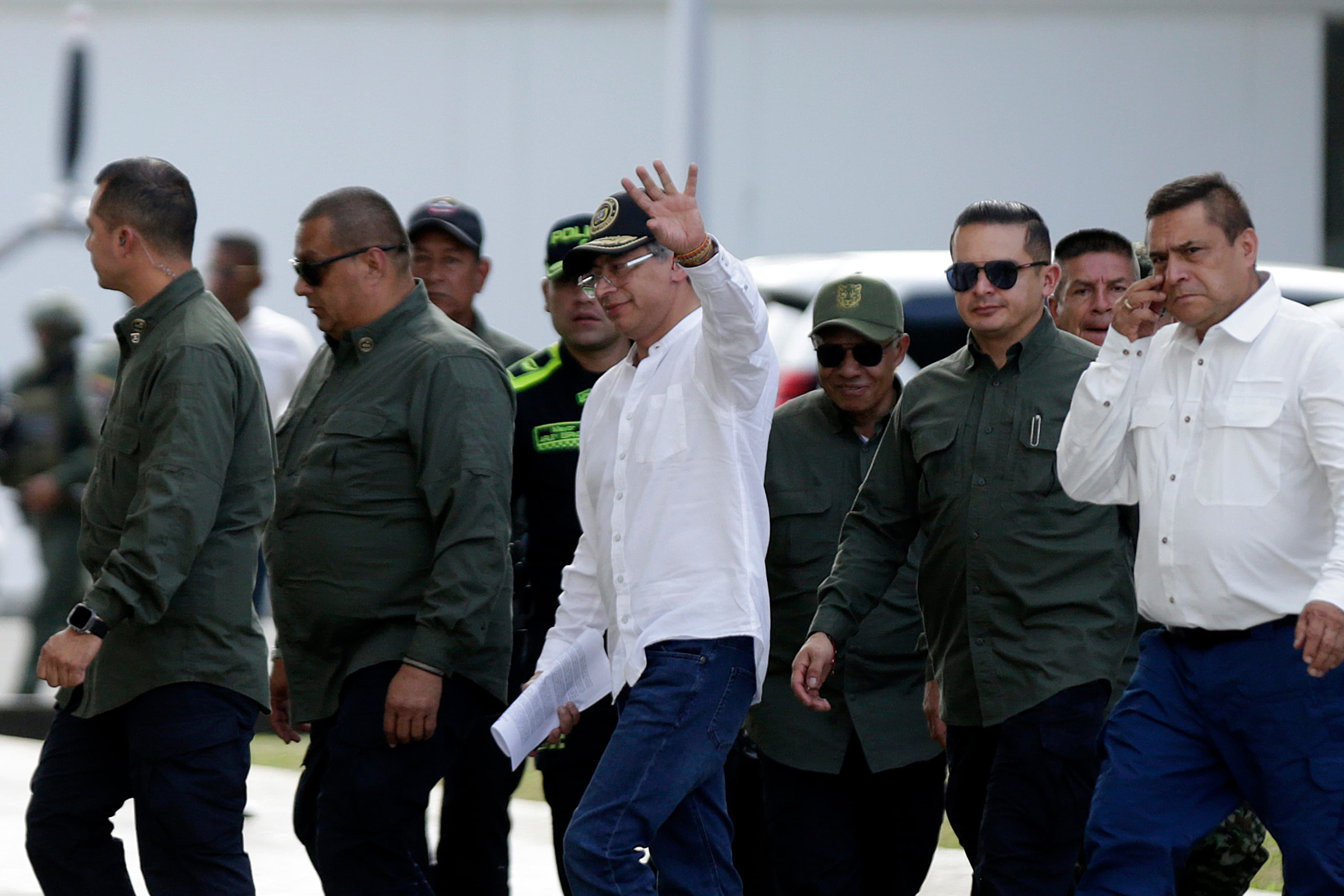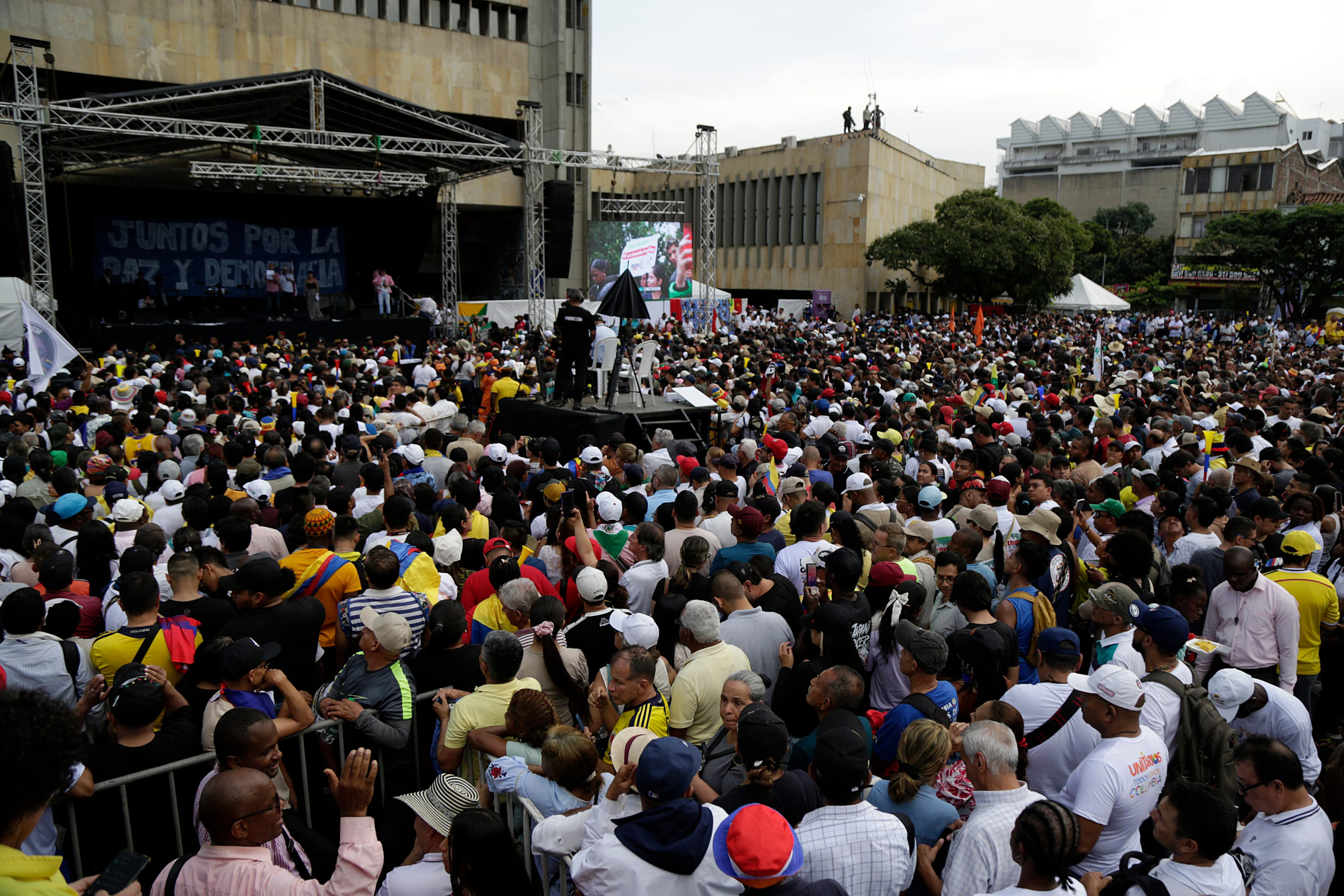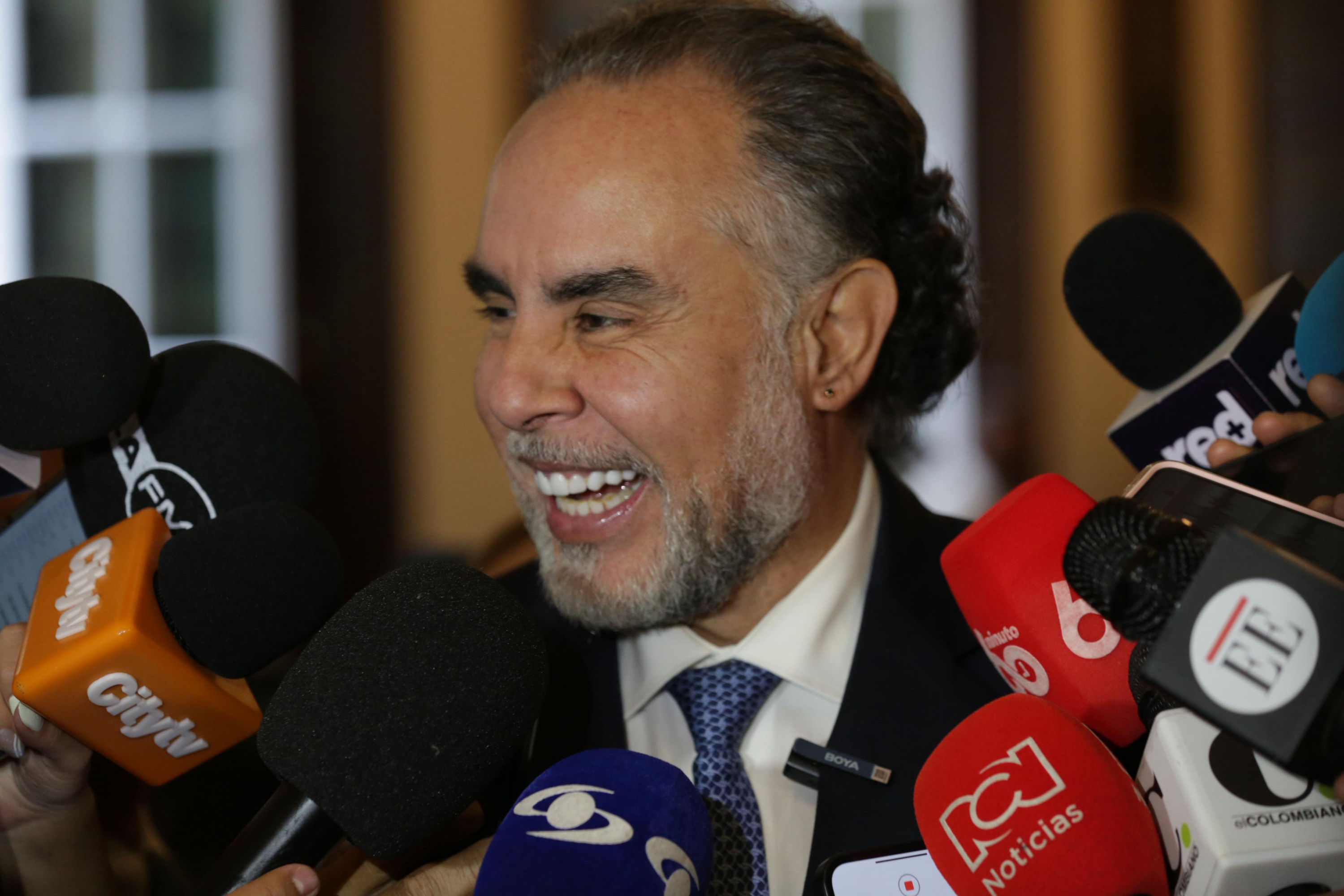Nine parties are asking registrar Penagos to apply an exception to the unconstitutionality of the consultation decree.

Nine political parties sent a letter this Thursday, June 12, to registrar Hernán Penagos, requesting that he apply a constitutional exception to the decree calling for the referendum on labor reform.
The groups that signed the letter were Radical Change, Democratic Center, Liberal Party, Conservative Party, Anti-Corruption League of Governors, Just and Free Colombia, Mira Party, Green Oxygen and New Liberalism .

The national registrar, Hernán Penagos. Photo: Registry Office
According to these parties, the decree signed by President Gustavo Petro, which calls Colombians to the polls on August 7, " clearly violates the constitutional order ."
"In the aforementioned administrative act in article 6, it is ordered that the National Registrar of Civil Status be notified through the Ministry of the Interior of the call for the Popular Consultation provided for in the decree, in order for him to adopt the pertinent measures, for this reason , it is imperative, Mr. National Registrar of Civil Status, in compliance with the constitutional mandate granted to you, that it be returned to the National Government for failure to comply with the necessary requirements for the call for the National Popular Consultation established in article 104 of the Political Constitution of 1991 and Statutory Laws 134 of 1994 and 1757 of 2015," the letter says.

President Gustavo Petro. Photo: Juan Pablo Rueda / EL TIEMPO
Furthermore, they point out that in any case Penagos can make use of the figure of exception of unconstitutionality, an instrument established in article 4 of the Political Constitution so that in the event of a contradiction between a legal or regulatory norm and a constitutional one , the latter is applied in order to preserve constitutional guarantees, mainly considering that its application "in addition to breaking with the constitutional order may imply a serious economic impact on the country for the realization of this unconstitutional popular consultation."
President Gustavo Petro signed the decree calling for the referendum, better known as the "decretazo" (the decree) because it ignored the Senate's decision not to approve the call to the polls. With this decision, it is abundantly clear that lawsuits will be filed before the Council of State to determine the legality of the presidential order.

San Francisco Square in Cali, where President Petro will give a speech. Photo: Juan Pablo Rueda / EL TIEMPO
As soon as the decree becomes final, with its publication in the Official Gazette, the ball will be in the court of the Registry, which will be notified of the call to vote on August 7. It will be Registrar Hernán Penagos who decides whether to act upon receipt of the presidential decree or whether to wait for a court ruling on its legality.
The Executive's position Interior Minister Armando Benedetti asserted that the government was opening the door to dialogue by giving the Senate the opportunity to include its points in the reform.

Interior Minister Armando Benedetti. Photo: César Melgarejo EL TIEMPO
"With the decree and the tweet, he sends a clear message of dialogue to the Senate plenary session. It is being issued today because the law gives a deadline until midnight. The president trusts the Senate and the agreements that can be reached to restore the labor rights of the working class ," said the head of the political portfolio.
There is broad consensus on the text. It is therefore unnecessary to issue a decree.
However, his predecessor, Juan Fernando Cristo, opposed the meeting. "I'm sure that before June 20th, in the Senate plenary session, and then in the conciliation with the House, a good labor reform will be approved that will restore workers' legitimate rights. There is broad consensus on the text. It would therefore be unnecessary to issue a decree."
Cristo also stated that "it disregards the Senate's decision regarding the referendum and the judicial branch's authority to review that decision. It is an unconstitutional decree and a grave mistake that sets a terrible precedent for the separation of powers in the country."
Juan Pablo Penagos Ramirez
eltiempo





